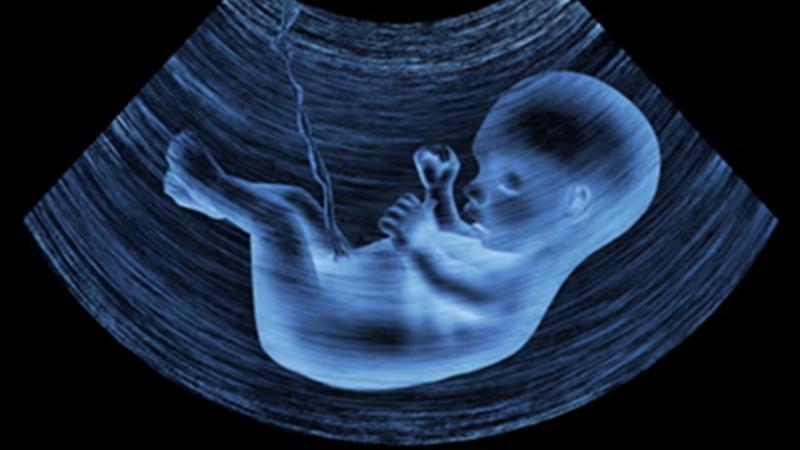Is Unborn Life Human?
Is Unborn Life Human?

The abortion issue in Canada is going to the Supreme Court. On July 29, 1987, this court gave the well-known Manitoban, Mr. Joseph Borowski, leave to challenge a Saskatchewan Court of Appeal ruling of April 30 that the constitutional guarantee of the right to life does not apply to the unborn. Mr. Borowski contends that unborn children are protected by the constitutional guarantee that every individual has the right to life.
So a key question that will be placed before the Court appears to be whether the unborn are to be considered human and are therefore to be protected by the constitutional guarantee that every individual has the right to life. Pro-abortion groups deny this.
Life Before Birth⤒🔗
Without any doubt, readers of Clarion do not need to be convinced of the fact that the Bible teaches that the unborn life is human life that deserves legal protection. Passages like Psalm 139 come to mind. Did David not see himself as being in the womb of his mother when he confessed:
For Thou didst form my inward parts,
Thou didst knit me together in my mother's womb.
I praise Thee, for Thou art fearful and wonderful.
Wonderful are Thy works! Thou knowest me right well;
my frame was not hidden from Thee,
when I was being made in secret,
intricately wrought in the depths of the earth.Ps 139:13-15
This personal identity started from the moment of conception, as is also clear from Psalm 51:5 “…in sin did my mother conceive me.” (See also Job 10:8-11.) Life in the womb before birth is described as “children” (Genesis 25:22; Luke 1:41) – think also of the expression “to be with child.” More passages could be given but that is not the object of this article.
What about Exodus 21:22-25?←⤒🔗
My purpose is to point out that in the battle surrounding abortion, the Bible is sometimes referred to in order to support the position that the unborn are less than human. The passage in question is Exodus 21:22-25. Is this a justified use of Scripture? Let us first listen to a translation that can be interpreted to favour a pro-abortion position, and listen to some conclusions. (Needless to say, not all those who may favour a translation that leaves itself open for pro-abortion interpretation necessarily draw the same conclusions.)
In the Revised Standard Version we read Exodus 21:22-25 as follows:
When men strive together and hurt a woman with child, so that there is a miscarriage [Lit. “and her children go out” c.v.d.], and yet no harm follows, the one who hurt her shall be fined, according as the woman's husband shall lay upon him; and he shall pay as the judges determine. If any harm follows, then you shall give life for life, eye for eye, tooth for tooth, hand for hand, foot for foot, burn for burn, wound for wound, stripe for stripe.

The gist of this passage, according to this translation, has been put this way. Since the mishap involving the woman “only” results in a miscarriage and no further harm is done, a fine will suffice. If however the woman herself is harmed, then the rule of life for life, eye for eye, tooth for tooth shall apply. The conclusion has therefore been drawn that the life of the unborn is less than human since for that death a penalty which is far less is demanded. This conclusion is used by pro-abortionists to argue for liberal abortion laws. According to them, abortion was and therefore still is permissible because God does not regard the life within the womb as a human being no matter how far the pregnancy has gone.
What the Text Says←⤒🔗
Since the Revised Standard Version is a widely used translation and since the interpretation of the passage as given also has many adherents, the words of J.W. Cottrell in his important article, “Abortion and the Mosaic Law” (Christianity Today, March 16, 1973) bear repeating. “There is absolutely no linguistic justification for translating verse 22 to refer to a miscarriage,” (p. 8). Probably the reference to miscarriage in Bible translations has been influenced by the fact that laws which legislate a fine for miscarriages due to an injury inflicted by someone else were well-known in the ancient Near East, including the time roughly contemporary with Moses.1 However, there is no need to turn to help from extra-Biblical sources in translating Exodus 21:22 because there are no special linguistic difficulties. What the Revised Standard Version translates “so that there is a miscarriage” is literally “so that her children come out.” The normal words for “child” and “going/coming out” are used. The plural “children” can be interpreted as denoting an indefinite singular. The verb is used elsewhere of a child coming out of the womb in birth (e.g., Genesis 25:25f.; Job 1:21; Jeremiah 1:5). Never does the word for “going/coming out” refer to a miscarriage unless this is specifically specified (e.g., Numbers 12:12). Further there is a special word in Hebrew for miscarriage, but it is not used in Exodus 21:22. It is found, e.g., in Exodus 23:26, “none will miscarry or be barren in your land.” (Also see, e.g., Hosea 9:14.)
The New International Version of Exodus 21:22f. accurately conveys the meaning.
If men who are fighting hit a pregnant woman and she gives birth prematurely but there is no serious injury, the offender must be fined whatever the woman's husband demands and the court allows. But if there is serious injury, you are to take life for life, eye for eye…
This rendition is in line with the traditional understanding of this passage as seen in the notes to the Dutch Statenvertaling, Calvin, C.F. Keil, and others.
Two Things can be Pointed out.←↰⤒🔗
-
In the first place, the fine is imposed when there is no serious physical harm to either the mother or child. It has been argued that it makes no sense to impose a fine when all is well (and therefore the fine must refer to the death of the unborn child). However, it can be answered that “the fine presumably is imposed because of the danger to which mother and child are exposed and the parents' distress in connection with the unnaturally premature birth” (Cottrell, op.cit.). In other words, the husband is allowed to sue his wife's attacker and the judges will see to it that the fine is reasonable.
-
In the second place, the rule “life for life” applies equally to the mother as well as to her unborn child. “If there is a serious injury [that is to either the child or mother, c.v.d.], you are to take life for life, eye for eye” etc. If the mother dies, so shall the guilty party; but also if the child dies. The life of the unborn is valued just as highly as that of the mother in this legislation. In today's context the conclusion is unavoidable. This passage in Scripture shows that abortion is murder.

The State of Our Society←⤒🔗
The fact that the abortion issue needs to be heard by the Supreme Court is an indication of how far our society's morals have decayed. Abortion, and even illegal abortions, have become very commonplace. Abortion was so abhorrent even to the pagan ancient Near East that the Lord did not deem it necessary to specifically prohibit abortion in the laws He gave to Moses. Heathen peoples like Assyria felt a strong repugnance towards aborting the life of the unborn. According to Middle-Assyrian law (ca. 1450- 1250 B.C.) a woman guilty of aborting her unborn was condemned to be impaled on stakes and not to be buried. Even if she died in the process of committing the abortion, she still was to be impaled and denied burial. She was “hung up in shame as an expression of the community's repudiation of such an abomination. It is hard to imagine a more damning commentary on what is taking place in enlightened America [or Canada c.v.d.] today than that provided by this legal witness out of the conscience of benighted ancient paganism!”2

Add new comment